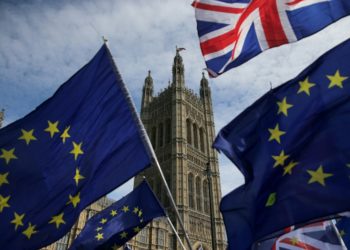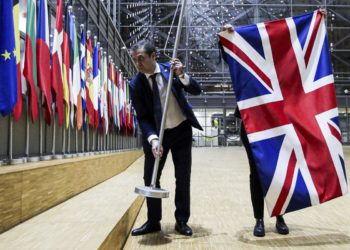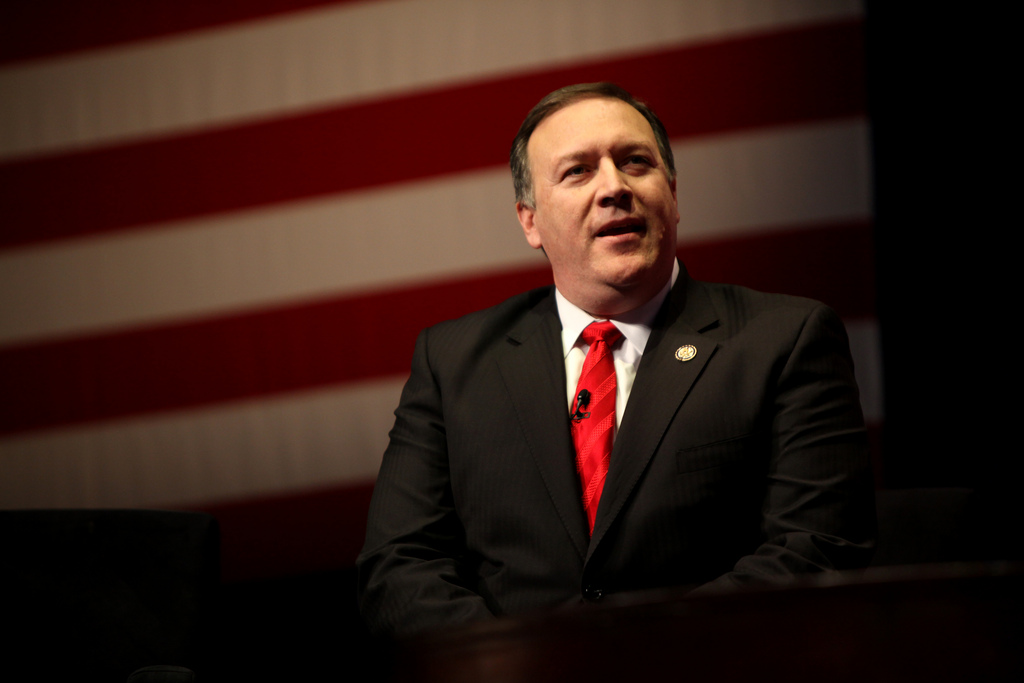The prospect of the U.K. holding European elections would have been unthinkable just weeks ago but, with the prospect of a long delay to Brexit now on the cards, the country is reluctantly planning a campaign.
Village halls and schools across the country are being booked as polling centers, and orders placed with specialist stationers for tens of millions of ballots in case the May 23 vote goes ahead.
The government on Friday said it was giving formal notice for the poll to go ahead and has already agreed to pay for initial preparations.
Prime Minister Theresa May admitted Britain would be “under a legal obligation to hold the elections” if it remained an E.U. member state beyond May 23.
She has requested a Brexit delay until June 30 but the European Council is considering a much longer 12-month extension that could be shortened if needed.
“The government is therefore undertaking the lawful and responsible preparations for this contingency,” May said in a letter to E.U. Council president Donald Tusk.
‘Zombie Election’
Both the ruling Conservatives and the main opposition Labour Party have so far kept quiet about any campaign plans, wary of how voters might respond.
May has previously said it would be “unacceptable” to ask Britons to take part in the elections three years after they voted to leave the European Union.
Her spokesman has emphasized that Britain could still cancel the polls up until May 22 if it had secured a deal to leave the E.U. by then.
This would cause anger in Brussels, not least because 27 of Britain’s 73 MEPs have already been reallocated to other countries.
A poll by @SkyData suggests 41% of people would prefer a ‘no-deal’ Brexit, 35% of people would rather a long delay and participate in European Parliament elections while 16% of people would prefer to leave the EU with Prime Minister Theresa May’s deal
— Sky News Breaking (@SkyNewsBreak) April 5, 2019
And it leaves Conservative candidates in the unenviable position of asking voters to back them in an election they themselves do not want, and still may not happen.
“That is not a conversation I relish having on the doorsteps of my constituency,” said the party’s leader in the European Parliament, Ashley Fox.
He said polls predicted voters would punish the Tories for betraying them on Brexit, with the best prediction suggesting it would lose half its 20 MEPs.
“It could be worse if our members decide they do not want to spend their evenings and weekends promoting a zombie election,” he wrote on the ConservativeHome website.
‘Superhuman Effort’
Election officials, who would normally have begun planning for the European polls before Christmas, are now under intense pressure.
After pressing the government for weeks, ministers finally confirmed on Monday they would reimburse costs of preparations that were strictly necessary.
The process of booking venues and ordering stationery is now underway – a mammoth task.
At the last European elections in 2014, they sent out 7.2 million postal votes, printed 46.5 million poll cards and had 39,000 polling stations.
Letters must also be sent out to more than three million E.U. citizens living in Britain to ask if they want to vote here or in their home country.
Laura Lock, deputy chief executive of the Association of Electoral Administrators, told AFP her members would do what was necessary, but that it would require a “superhuman effort”.
Return of Farage?
The Conservative Party has so far refused to confirm what it is doing to select or field candidates for the elections, while Labour says only that it is “making contingency plans.”
But smaller parties sense an opportunity.
I will lead @brexitparty_uk into the European elections. The fightback to save Brexit has begun. pic.twitter.com/z4TUdOhRAM
— Nigel Farage (@Nigel_Farage) April 5, 2019
The Scottish National Party (SNP) which wants to reverse the whole Brexit process, said it would contest any election “very vigorously”.
The newly formed Independent Group, made up of pro-European former Conservative and Labour MPs, last week applied to the election authorities to be allowed to take part.
And Nigel Farage, a lead campaigner in the 2016 E.U. referendum, has said he would stand for his new Brexit party.
He condemned May’s delay as the latest “Brexit betrayal” and said: “It is now clear we will have to fight our political classes again. I’m up for it.”
More on the Subject






















